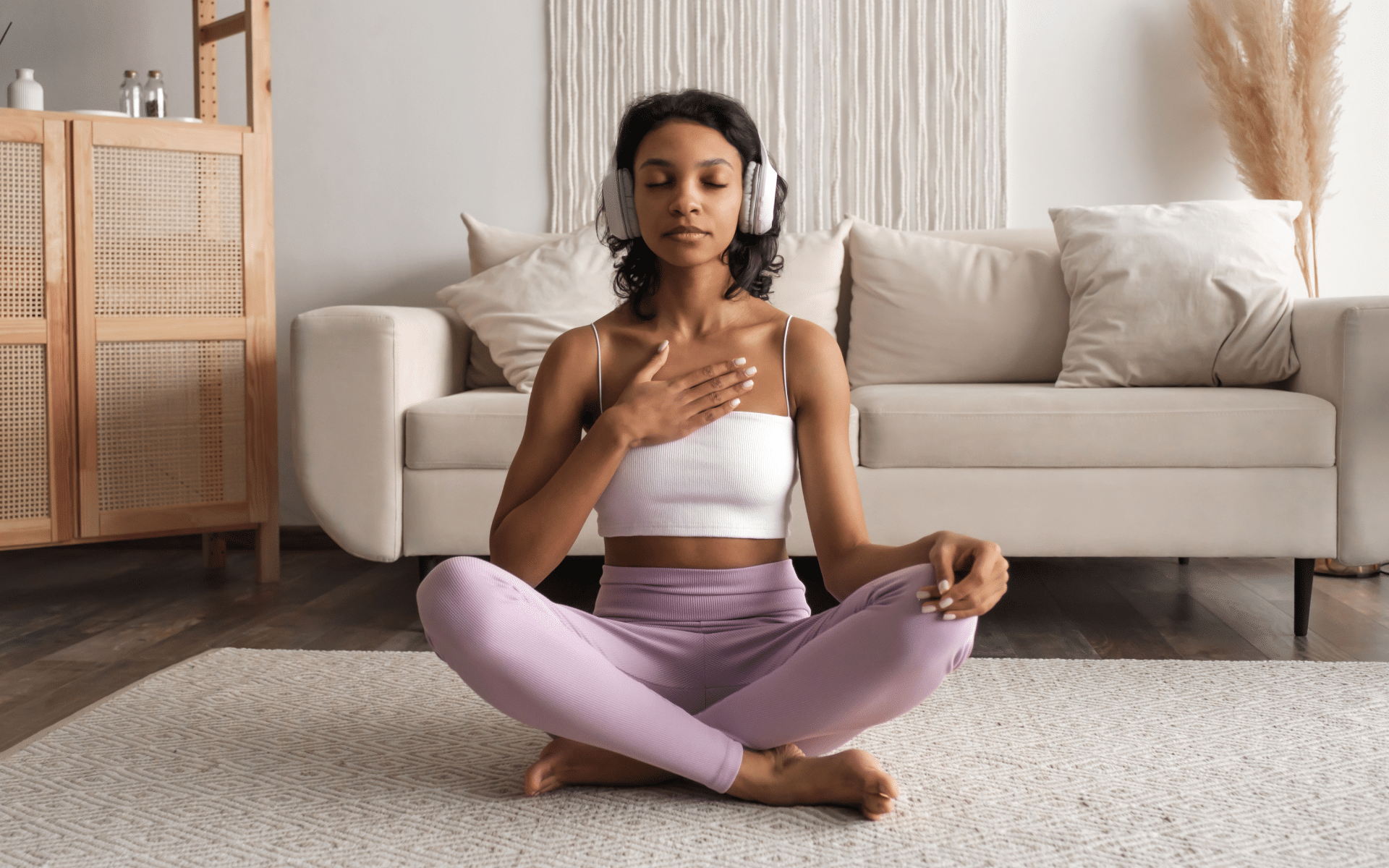Do you walk every day? Maybe you belong to the group of people who consider walking a kind of non-serious exercise that doesn’t deserve your time.
The truth is, many of us may underestimate walking probably because it’s something we do both indoors and outdoors. Whether it’s brisk or slow strolling we get used to it and as a result see it as not as effective as other types of training. Well, that makes some sense.
But what if I told you that a nice walk daily for 20-30 minutes may benefit not only your physical but mental health? Of course, you can’t call it a major remedy for your mental issues, but it can speed up your healing process.
It’s high time you discover the benefits of walking for your well-being. And if you haven’t taken part in this activity for a while, why don’t you slip on some comfy shoes and clothing, get outdoors, and restore your powers in just 20 minutes?
Is a walk really helpful for mental health? Here’s what a short walk can do for your body.
Are walks good for mental health?
The short answer is yes, walks are good for mental health. But you came here for an explanation, and not vague statements.
Let’s cover some research and statistics.
According to a study funded by the Health Research Board, which appeared in JAMA Network Open, a 20-minute brisk walk just 5 times a week can significantly reduce the risk of depression (5). This is great evidence highlighting the mental health benefits of walking outside.
Another study demonstrates that 90 minutes of walking in nature decreases activity in a region of the brain associated with a key factor in depression (4).
Now, let’s move to walking and mental health statistics.
American Psychological Association highlights: 25% of adults who take 2.5 hours of brisk walking per week report a lowered risk of depression (6).
Whether you want to learn how to exit the spiral of self-harming behavior, overcome anxiety, cure insomnia or simply give yourself the time and space to bliss out and soak up the moment of complete peace and quiet – BetterMe: Meditation & Sleep app is exactly the tool for that! If you don’t take care of number one, who will?
Is walking a form of therapy?
There is no doubt about the mental health benefits of walking. Adding it to your Self-Care Checklist would be one of your best decisions. But can you call walking a form of therapy?
It depends on the situation. Plus, some research has found that long-distance walking might function as a form of psychotherapy, in some cases. Still, that doesn’t prove that the emotional benefits of walking are pointless. You should consider daily walks as they can positively affect your mood and physical health. A short walk around your block or in the park every day can promote your physical health by:
- improving your sleep
- enhancing endurance
- promoting weight loss
- improving cardiovascular health and reducing cholesterol (2).
It’s mind-blowing how much you get without sweating at the gym or running.
How does walking clear your mind?
There are two words perfectly fitting into the answer to this question – Mindful Walking. This is the exact type of walking you can use to clear your mind and break from your internal worries.
Mindful walking is the type of activity that allows you to acknowledge and enjoy the present moment and observe things around you. Let’s face it, we constantly either focus on our past actions or on the future. But how often do we concentrate on the present? Unfortunately, rarely.
This type of walking can help you clear your mind from nagging thoughts and highlight truly important things you don’t notice most of the time. To practice mindful walking you will need to:
- put on comfortable shoes and clothing and get outside
- move to any area where you feel safe and relaxed
- switch on all your senses (watch the area and people around: what they’re wearing, their gestures, and emotions; feel the smell of grass and flowers; hear the voices of people and laughter of children; taste something delicious while you’re walking; feel the ground under your feet)
You don’t have to walk alone. Jazz it up by inviting your friend or companion. Sometimes other people are the ones who help us clear our heads and look at the situation from a different perspective.
If you’re not into observations or prefer a solo walk, you can clear your head with music or your favorite podcast. The thing is, the top benefit of walking is that there is no right or wrong option. You can do whatever makes you content and relaxed.
Read more: Is a Walk for Mental Health Really Helpful? Here’s What a Short Walk Can Do to Your Body
How long does it take to walk outside for mental health?
You have read about the study that suggested 90 minutes of walking outside for your mental health. But we all know that some people may not have and not want to contribute so much time to walking (4).
The main tip here is to do something for some amount of time rather than nothing at all. That said, strolling for 3 days a week for 10-30 minutes at a time can also be enough for your mental and physical health (2). This may help you ward off depression and improve your self-esteem.
Gradually, you will move to either longer distances or enjoy your walking routine every day.
What are the 2 mental benefits of walking?
The two main benefits of walking on mental health are:
- stress relief
- reduced depression
But how does it work?
This activity helps boost your mood as it increases blood flow and blood circulation to the brain and body. Your hypothalamic-pituitary-adrenal (HPA) axis is involved in the central nervous system’s response to stress, and walking has a great effect on its function (2).
Walking can calm your nerves and reduce your level of stress.
How do I start walking after being sedentary?
You have all the benefits of walking for physical and mental health and now desire to get up from that chair and go outside. But something is interfering with your intentions: Lack Of Motivation or simple laziness.
Forget about those excuses, look at the potential benefits of walking again and create a walking routine on your own.
Check out a few hacks to get you started:
- Start with short walks. Take a 5-10 minute walk during your lunch break. Working from home? Stroll for 5 minutes around your room. When this becomes a routine, upgrade to 20 minutes after work. Find enough time during the day for your walks.
A special tip: Stick colorful notes with your schedule on the wall where you jot down the necessary walking minutes for your day. A visual schedule is a good way to remind yourself of an activity.
- Make walking enjoyable. If you enjoy solo walking, you can grab a phone and turn on a podcast or use no devices and walk mindfully. If you don’t like walking by yourself, you can ask a neighbor or a friend to join you. You can consider joining a walking group or a health club.
- Don’t forget about comfort. Wear comfortable shoes that won’t hurt your feet if you’re hiking for long distances. Put on clothing that can help in unpredictable weather conditions. Water-repellent synthetic fabric will keep you cool and dry if you work up a sweat.
- Walk safely. If you’re planning on walking at night, put on brightly colored clothing and a reflector to help cars see you when they’re passing by. Watch your surroundings, and always stay safe.
- Switch up your routine. If you stroll outdoors, experiment with different routes. If you’re walking on your own, tell someone which route you’re taking for the day. Always consider well-lit and safe locations.
- Don’t worry about missed days. There’s nothing wrong with missing days. There might be some unpredictable situations or you just don’t feel like walking that day . Get back to your walking routine by reminding yourself of how good you feel when you include physical activity in your lifestyle (2).
With stress being a constant presence in our lives, taking time to process emotions, decompress and get into the right frame of mind is absolutely crucial. With BetterMe: Meditation & Sleep app your mental health is in good hands! Start using it now!
FAQs
Does walking make you happier?
One of the major benefits of walking on mental health is improvements in your mood. Walking can help you reduce your stress levels, and anxiety, and alleviate unpleasant feelings. It promotes the release of endorphins and adrenaline which make you happier.
Why does walking calm your mind?
Studies show the soothing impact of walking on your brain. If you’re feeling nervous, anxious, or worried, you can walk for 10-15 minutes outside and feel better. This can happen because walking releases endorphins in the brain which eases stress and benefits your mood.
Why do I think better when I walk?
When you’re overwhelmed your brain needs to change its focus. Therefore, walking activity stimulates blood flow, sending oxygen to your brain, which gives you the ability to concentrate and think better.
The Bottom Line
Is a walk for mental health really helpful? Here’s what a short walk can do to your body.
walking is a healthy activity that provides essential benefits for physical and mental health: it may relieve stress, symptoms of depression and anxiety, and boost your mood.
Incorporating walking into your daily routine may also benefit your sleep, endurance, weight, and cardiovascular health.
You can start your walking routine with 5-10 minutes daily and gradually move to longer distances.
Please note that walking is not the major remedy for treating mental disorders. Contact a professional therapist if you’re dealing with mental health issues.
DISCLAIMER:
This article is intended for general informational purposes only and does not serve to address individual circumstances. It is not a substitute for professional advice or help and should not be relied on for making any kind of decision-making. Any action taken as a direct or indirect result of the information in this article is entirely at your own risk and is your sole responsibility.
BetterMe, its content staff, and its medical advisors accept no responsibility for inaccuracies, errors, misstatements, inconsistencies, or omissions and specifically disclaim any liability, loss or risk, personal, professional or otherwise, which may be incurred as a consequence, directly or indirectly, of the use and/or application of any content.
You should always seek the advice of your physician or other qualified health provider with any questions you may have regarding a medical condition or your specific situation. Never disregard professional medical advice or delay seeking it because of BetterMe content. If you suspect or think you may have a medical emergency, call your doctor.
SOURCES:
- Are Long-Distance Walks Therapeutic? A Systematic Scoping Review of the Conceptualization of Long-Distance Walking and Its Relation to Mental Health (2021, ncbi.nlm.nih.gov)
- Mental Benefits of Walking (2021, webmd.com)
- Mental disorders (2022, who.int)
- Nature experience reduces rumination and subgenual prefrontal cortex activation (2015, pnas.org)
- Physical Activity Dose and Depression in a Cohort of Older Adults in The Irish Longitudinal Study on Ageing (2023, jamanetwork.com)
- Want to boost your mental health? Take a walk (2022, apa.org)









